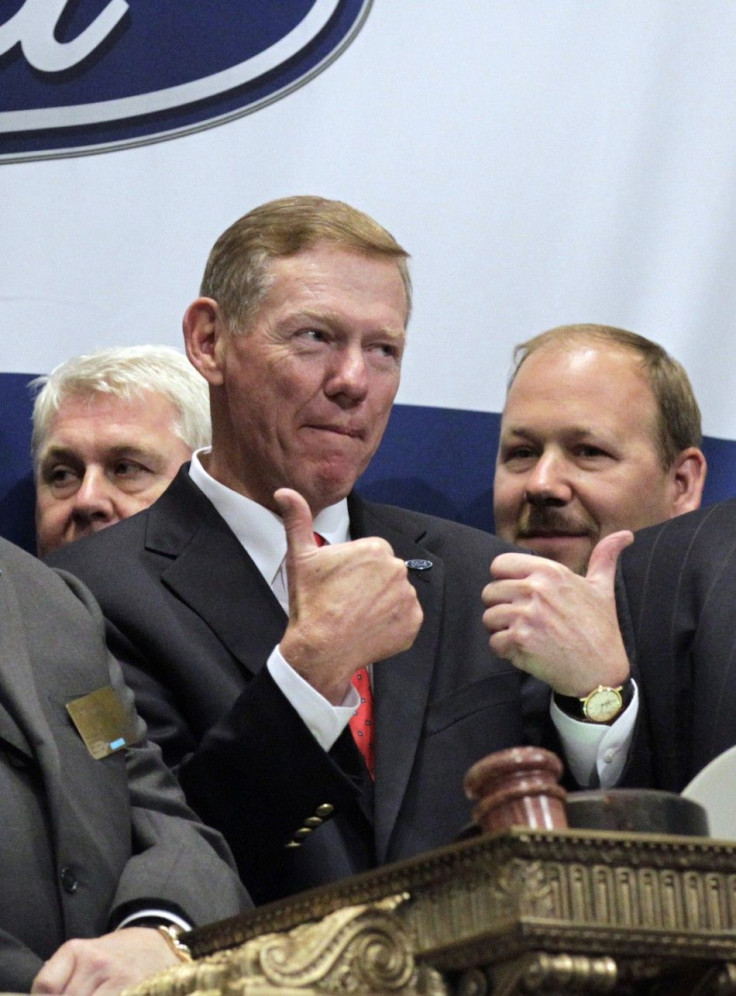Ford Motor Company Turnaround: 5 Lessons for Emerging From Hard Times
ANALYSIS

Ford Motor Co. said on Wednesday it was profitable again in the third quarter, earning $1.65 billion -- the tenth consecutive profitable quarter for Ford.
The company has secured a new labor contract with the United Automobile Workers union and said it is close to restoring a dividend to shareholders that was slashed during Ford's hard times before recovery in the past two years.
Ford is paying down debt -- the company reduced automotive debt by $1.3 billion in the third quarter to $12.7 billion -- and it recently got a credit rating upgrade from Fitch Ratings, with another likely coming from Moody's.
The core of the business is very strong, said Ford chief financial officer Lewis W.K. Booth, during a press event for the third-quarter earnings announcement.
There is still work to do. Ford's quality rating from Consumer Reports recently slipped, due to lower survey scores on the company's Explorer, Focus, and Fiesta models. The company is also dealing with a shaky business environment, particularly in Europe where the company lost money in the third quarter.
But for a company that some said was dead and gone several years ago to be standing on such solid footing, with 10 straight quarters of solid earnings and a strong core business model, the state of the Ford Motor Company union is a testament to coming back from hard times.
As many Americans and others throughout the world grapple with making a comeback in lingering difficult economic conditions from the 2008 Great Recession, here are 5 lessons to learn from Ford Motor Company for dealing with and coming back from hard times:
1) Communicate with stakeholders. When Alan Mulally became Ford CEO the company was in trouble, bleeding cash with too few new, exciting products in the pipeline. But Mulally became a regular in front of Ford stakeholders, from suppliers, to dealers, debt holders and employees. In a crisis, leadership must be visible with all stakeholders so that they understand everything possible is being done to try and fix the problem.
2) Be simple and clear. Ford achieved the simple and clear mantra needed in tough times so that everyone understands the aim and goals through the One Ford vision. The company moved to simplify its platforms, and brand focus, shedding distracting brands like Volvo that didn't fit with Ford's Blue Oval namesake brand. But it was more than that -- in every communication Mulally made sure everybody was given one light to follow -- one Ford. It was a language and a focus all could understand.
3) Invest in the future. When times are tough, the tendency can be to cut back, slashing costs that strangle hopes for the future. Ford didn't have its hand out -- the company did not take TARP money -- and it didn't run for the hills -- Ford didn't file for bankruptcy. Instead, Ford doubled down on its future by pushing available cash into developing a product pipeline that could pull the company out of the downward spiral. It was a risk, but betting on the future while also dealing with pressing issues of the moment was the only way out.
4) Change. What worked in the past rarely works into the future. Ford made its mark in the 1990s with SUVS. But Mulally and company understood that the company had to evolve, and lead into the future with more efficient SUVS, and small cars that not only were efficient, but also exciting to drive. Times change, and so must people and companies if they want to lead instead of lag. Change is vital to sustainability, particularly for a company that's been in business for more than 100 years like Ford.
5) Reach out and touch someone. Ford understood that it could no longer try to simply tell customers and potential customers how good its products are -- the company needed to have meaningful conversations with customers so that they could learn for themselves what Ford and its products are about. So Ford used social media and other grass roots tools to develop relationships with customers beyond traditional advertisements and sales tools.
By cultivating relationships through the innovative, direct approach, Ford was able to change how the company was viewed. It became very accessible, engaging with customers long before those customers reached dealer lots, and it changed the overall perception of the company so that when it brought new products to market, the market already had an understanding and knowledge.
© Copyright IBTimes 2025. All rights reserved.





















